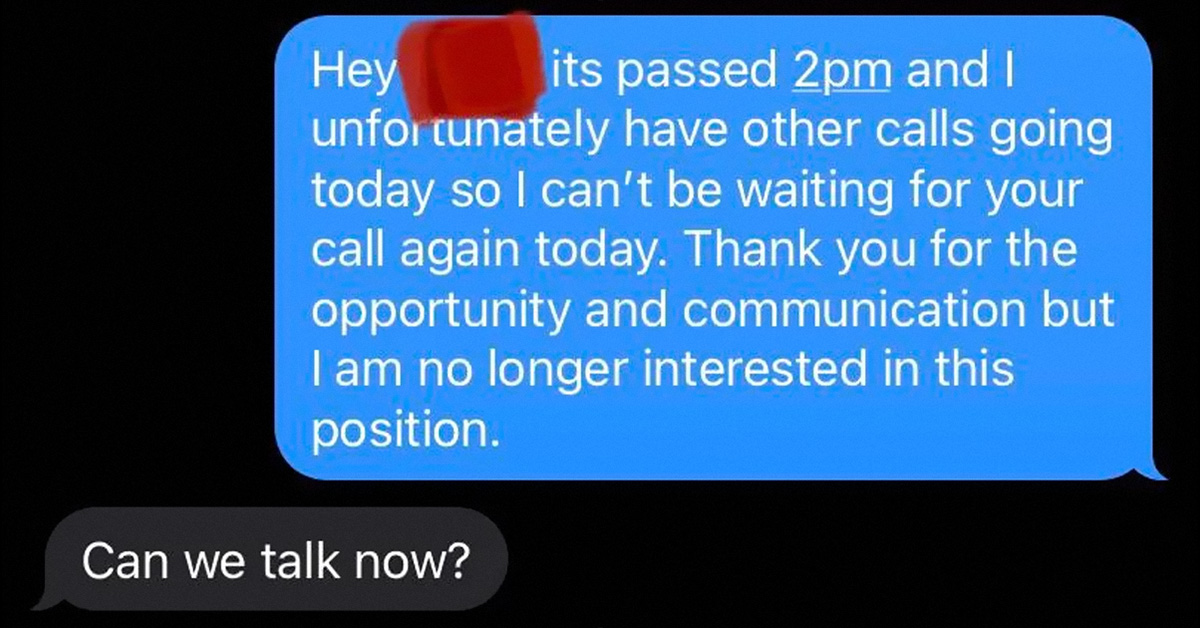Woman Shares Bonkers Text Thread After Missing Two Scheduled Interviews With Agro Recruiter
Looking for a job can be a stressful process, and it’s normal to want to impress potential employers. However, it’s also important to be aware of red flags that may indicate a toxic work environment.
Ignoring these warning signs can lead to a negative job experience. It is important to be proactive in identifying these red flags during the job search process.
Recently, a Reddit user shared screenshots of a recruiter sending them abusive text messages on the “Antiwork” subreddit. This serves as a reminder that some companies have not evolved past outdated and abusive practices. The best way to combat these companies is to refuse to join their ranks.
“For context: set up an interview the previous day for 2 pm. A prospective employer called me at 3 pm when I was unavailable. Rescheduled the interview for 2 pm the next day and still did not call at the scheduled time.”
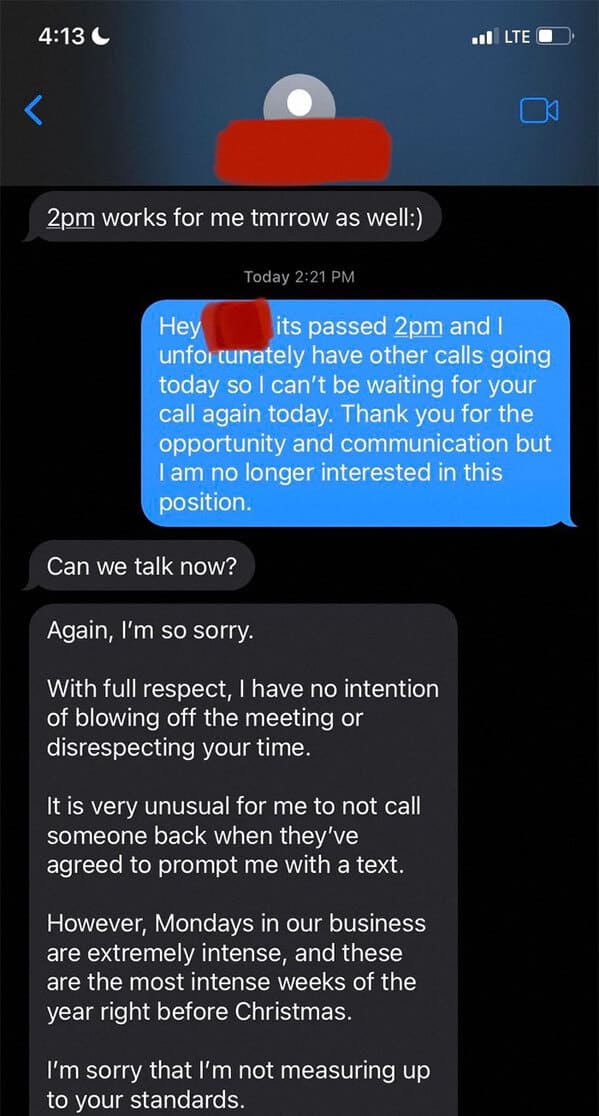
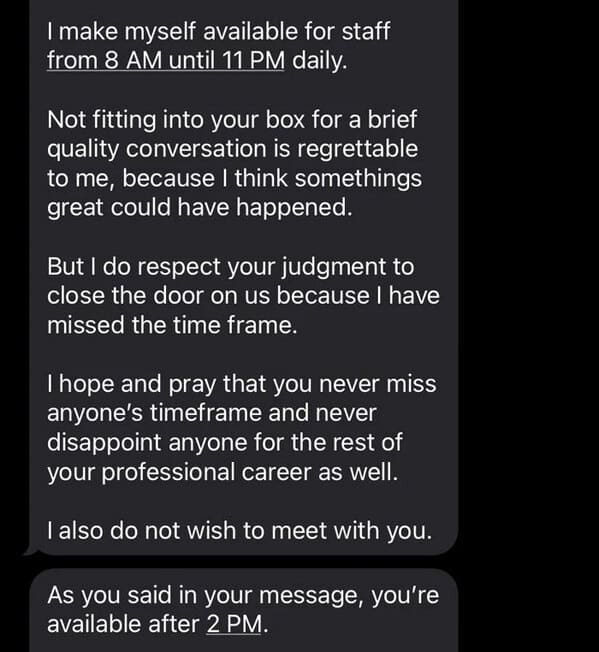
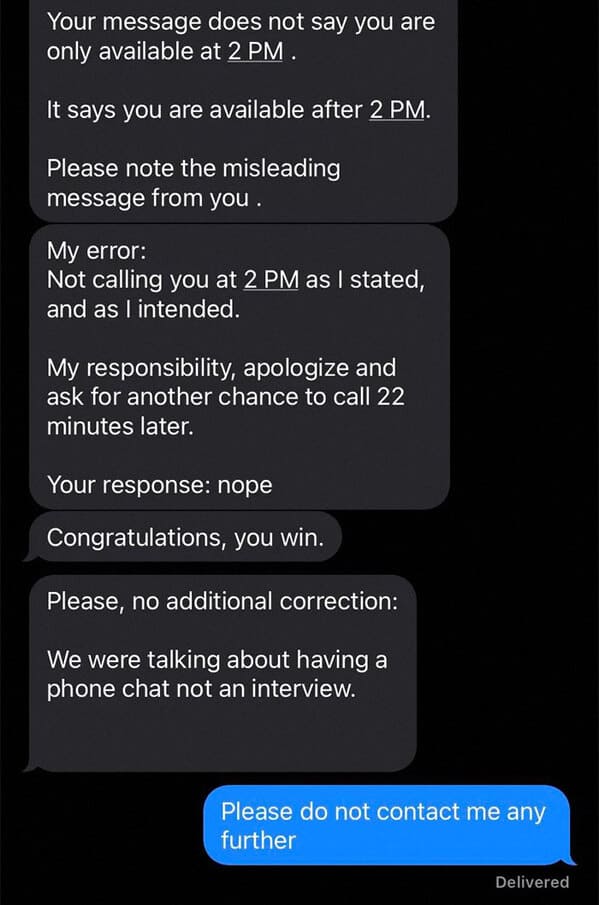
A survey by CareerBuilder found that two-thirds of workers have accepted a job that turned out to be a poor fit, with half of them quitting within the first six months.
Rebecca Zucker, an executive coach who helps leaders make positive changes within their organizations, suggests being aware of various signals during the interview process that may indicate larger issues with the potential boss, team, or company. She advises job seekers not to be overly skeptical or suspicious, but to be attuned to these warning signs in order to make an informed decision about the job.
Here are 10 red flags to watch for during the job interview process, according to executive coach Rebecca Zucker:

1. Constant rescheduling and disorganization
“While it is common for interviews to be rescheduled due to unforeseen circumstances, frequent rescheduling may be a red flag,” said Zucker. This could be an indication that something is not right within the company.
2. Disrespecting others
During the interview process, pay attention to how the people you are meeting with handle tensions or challenges with other departments or stakeholders, advises executive coach Rebecca Zucker. Is their communication constructive, or do they speak about these issues in a disrespectful manner? This can be an indication of the company culture and how well employees work together.
3. Values conflict
“A values mismatch is a big red flag,” Zucker says. “Get clear on what your most important values are before you start the interview process and have questions ready that will allow you to assess the company’s culture, the extent to which the organization shares your most deeply held values, and how well you’d be able to express your these values on the job.”
4. Lack of clarity or consistency in answers to your questions
When you ask questions during the interview, pay attention to the clarity and precision of the answers you receive. Are they vague and general, or do they provide specific and concrete examples? This can give you an idea of the company’s transparency and how well they communicate.
5. Bait and switch
If the job you are interviewing for begins to differ significantly from the one you applied for, it may be a sign that the company does not handle change or communication effectively.
6. Inappropriate questions or comments
“If you receive a question or comment that is ageist, sexist, racist, or equally offensive, it is an obvious red flag that this organization not only has poor training but also likely tolerates bad behavior — or just as bad, has not addressed unconscious bias in its talent management practices, including recruiting,” Zucker said.
7. Lack of connection
Zucker emphasizes that a successful job interview should be a two-way conversation that excites both parties about the potential of working together.
“When there is a lack of energy or connection and the interviewer doesn’t seem engaged, is not smiling, seems distracted, and/or is robotically asking questions as if following a script and not really trying to get to know you, that is not a good sign.”
8. Resistance to change (even if they say they want change)
Some hiring managers may resist change and prefer to maintain the status quo, lacking a growth-oriented mindset. This may be due to their traditional or outdated way of thinking.
9. Excessive number of interviews or drawn-out interview process
According to Zucker, a red flag appears when the number of interviews becomes excessive and the process takes an unnecessarily long time. This may be a sign of indecisiveness or difficulty in making decisions within the company.
“Either (or both) of these can be a sign that the team or organization is overly consensus-driven, indecisive, or has issues driving things to completion.”
10. Exploding offers
Job offers that come with a strict deadline and limited time for consideration may feel like an ultimatum and can be disrespectful of the individual’s need to make a well-informed career decision.
After seeing the conversation between the recruiter and the candidate, many readers believed that the recruiter could benefit from therapy or a break to recharge.
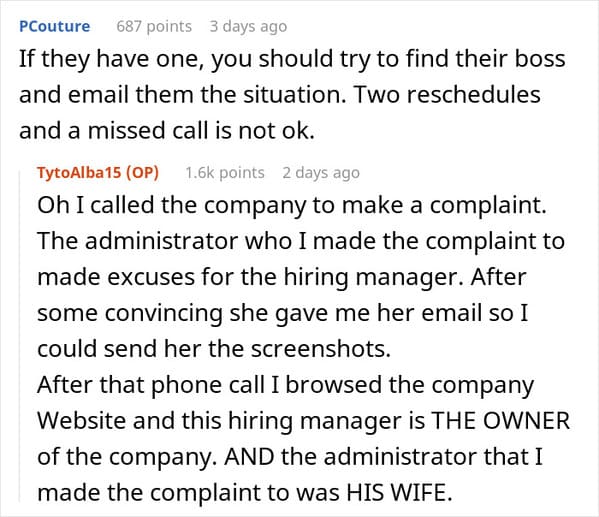


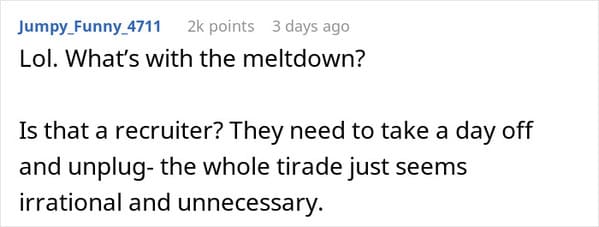
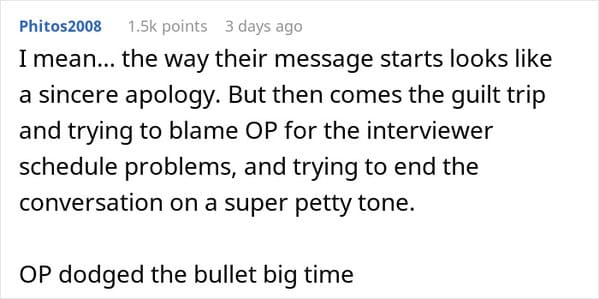




Several people shared similar experiences of their own after reading the conversation.
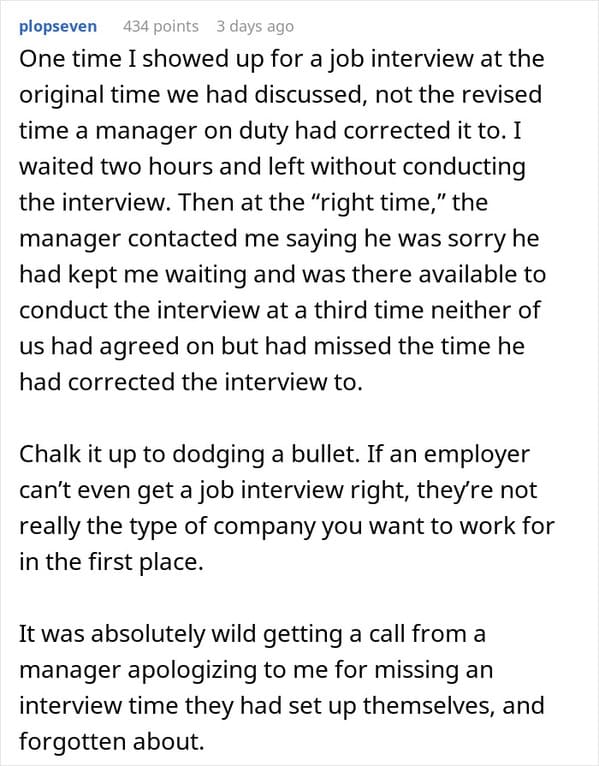
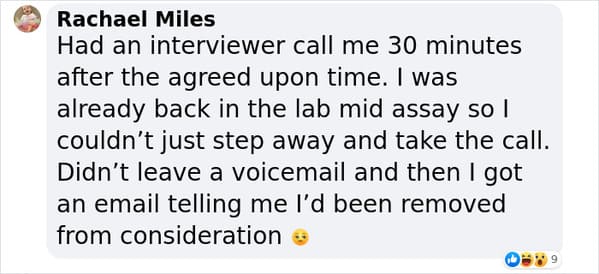
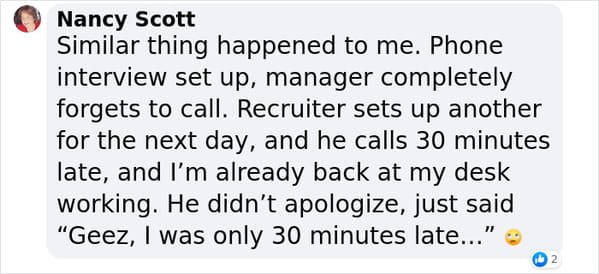
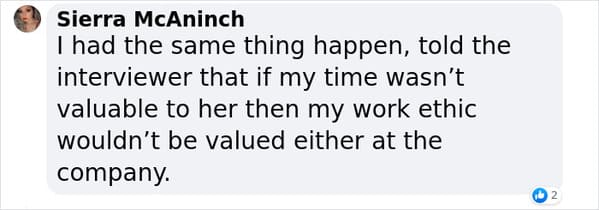
h/t: BoredPanda

